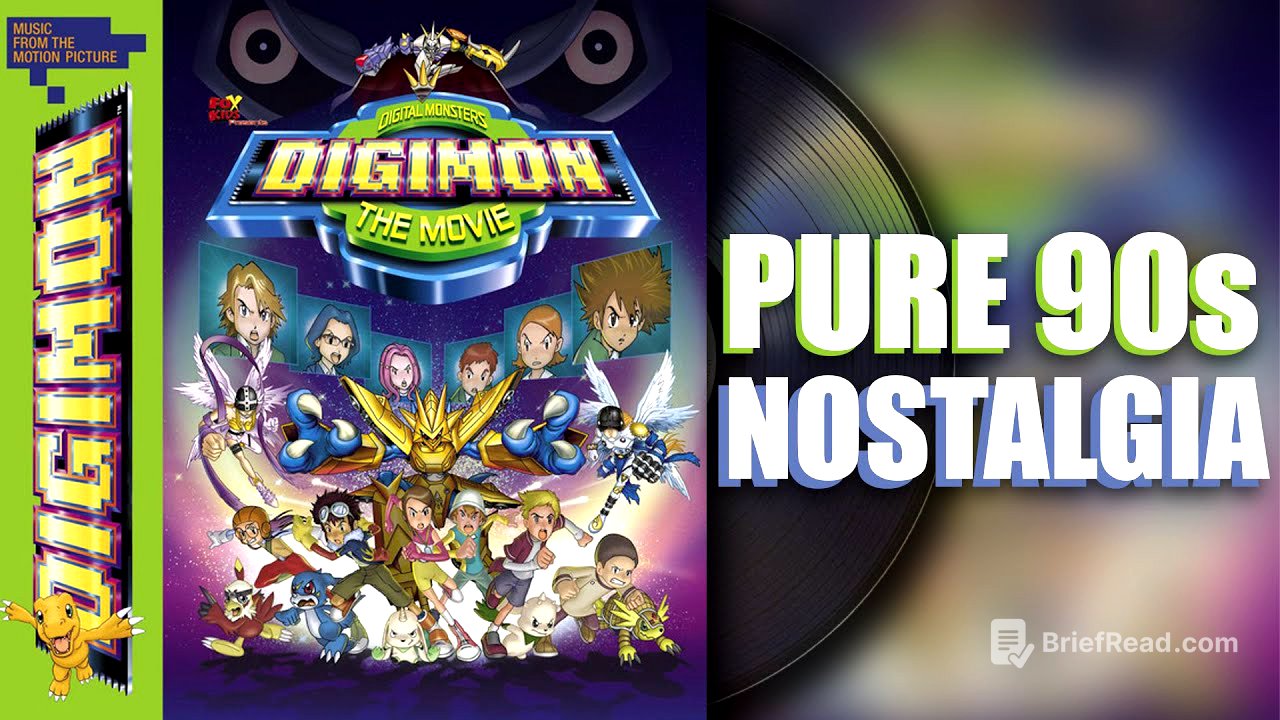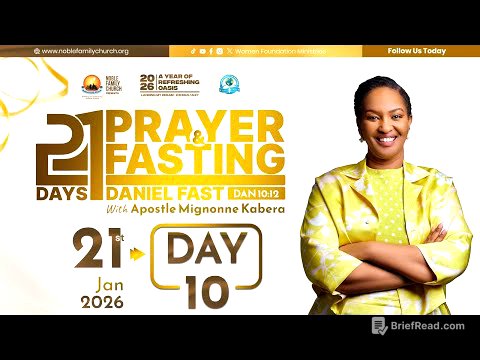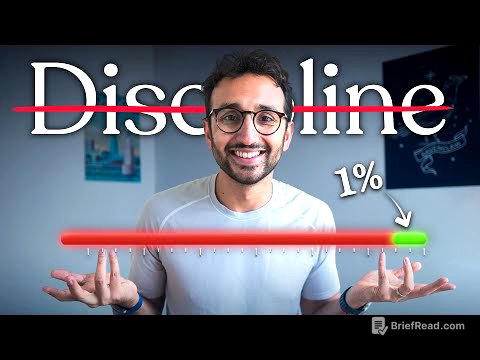TLDR;
This video reviews the soundtrack for the 2000 film "Digimon the Movie," highlighting its significance as a musical time capsule of the late '90s and early 2000s. It examines each track, from the "Digi Rap" intro to the closing "Here We Go," including licensed songs and bonus tracks, and emphasizes the album's blend of pop-punk, ska, and meme-worthy hits.
- The soundtrack captures the musical trends of the year 2000.
- It features a mix of original tracks and licensed songs.
- The album includes contributions from influential pop and rock artists.
- It is considered a classic and an "audio time capsule."
Digi Rap and Introduction to the Album [0:48]
The album starts with "Digi Rap," which serves as an introduction to the world of Digimon, similar to how "Sergeant Pepper's Lonely Hearts Club Band" introduces its titular band. The lyrics emphasize the dynamic force of Digimon, setting the stage for the musical journey ahead and clearly establishing the theme of Digimon as champions.
Smashmouth's All-Star and Its Significance [1:20]
Smashmouth's "All-Star" is featured on the soundtrack, predating its association with "Shrek." The song is interpreted from the perspective of the film's narrator, Ki Kamya, referencing his presence in all three time periods of the movie. Its use in the film's emotional climax, with a resurrected cookon dancing to it, is particularly noted.
Fatboy Slim's The Rockefeller Skank [1:55]
Fatboy Slim's "The Rockefeller Skank" is included, described as a timeless dance number with energy matching the film's drama. The song accompanies a scene where Coran engages a young Tai and Ki in a battle, and despite the scene's potentially problematic nature, the track remains fresh and funky.
Len's Cover of Kids In America [2:24]
Len's cover of "Kids In America" was the album's lead single and complements the film's third section, where the Japanese heroes of Digimon arrive in the USA. This track underscores their transformation into "Kids In America" within the series' narrative.
Hey Digimon and Its Nostalgic Vibes [2:42]
"Hey Digimon" from the first season of "Digimon Digital Monsters" is included, often used in evolutions and battle sequences. Despite its laid-back vibe being an odd choice for battle music, it evokes a breezy nostalgia.
Barenaked Ladies' One Week and Transmedia Storytelling [3:12]
Barenaked Ladies' "One Week" is highlighted as a standout track, transporting listeners to the urban environment of Tokyo. The lyrics reference "Sailor Moon," creating a moment of transmedia storytelling by referencing another Toei Animation product within the Digimon soundtrack.
Ska Music: Mighty Mighty Bosstones and Less Than Jake [3:59]
The album includes ska tracks from The Mighty Mighty Bosstones ("The Impression That I Get") and Less Than Jake ("All My Best Friends Are Metalheads"). The Bosstones' track complements a scene where Sora receives an apologetic email from Tai, capturing the melodrama of early internet communication. Less Than Jake's contribution leans more into ska-punk.
Original Digimon Tracks: Runaround and Here We Go [4:48]
Jason Radford's "Runaround" is considered the strongest of the original tracks made for the Fox Kids version of Digimon, resembling a pop-punk style similar to Blink-182. "Here We Go," written by Jeremy Sweet, Shuki Levy, and Kussa Mahchi, and performed by Jason Goins, was frequently reused in "Digimon Adventure 02" and is a close second to "Runaround" in quality.
Non-Film Tracks and Bonus Content [5:20]
Summer Camp's "Nowhere Near It" and Showoff's "Spill" are included despite not appearing in the film, adding to the album's dated feel. The bonus tracks include a full version of the Digimon Theme, "Change Into Power," "Let's Kick It Up," "Going Digital," and "Strange," with "Let's Kick It Up" being a standout.
Conclusion: An Audio Time Capsule [7:14]
The Digimon the Movie soundtrack is described as an audio time capsule from the year 2000, with a consistent devotion to pop-punk and ska sounds. It also includes tracks that have become meme royalty, such as "All-Star" and "One Week," making it a classic album.









